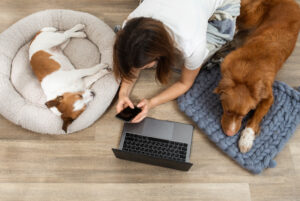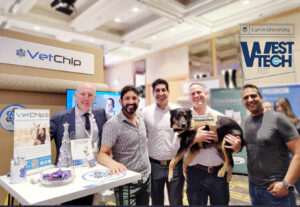More and more Australians are trying to minimise their impact on our environment. Sometimes it involves a big financial outlay, such as installing solar panels. But don’t underestimate how small, simple changes to can make a really big impact.
Here are 7 tips to live more sustainably with pets that are easy to implement and, in many cases, don’t cost a cent!
Tip #1: Choose plastic-free packaging
Of all the tips to live more sustainably with pets that you’ll ever find, reducing (or even eliminating) the use of plastic packaging has to be top of the list.
Pet foods and products – especially those made by large manufacturers – tend to come with loads plastic packaging. However, there are alternatives.
If you make your pet’s meals yourself using fresh ingredients, reduce or even eliminate plastic packaging when doing your grocery shopping. Instead of using store-provided plastic bags, take your own bags instead, such as brown paper or beeswax lined bags.
Also, change where you shop and buy from retailers like Paws N’ All that use plastic-free packaging. These include recyclable paper and cardboard, or corn starch packaging which can be composted at home.
Tip #2: Give them offcuts
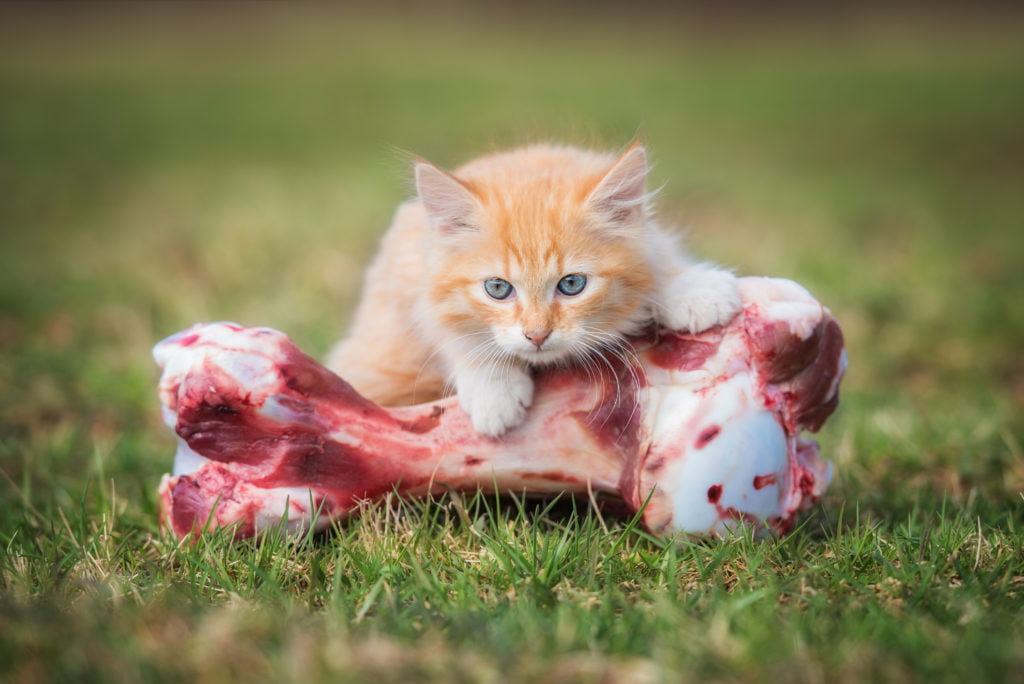
You may not be interested in eating chicken necks, lamb livers, kangaroo kidneys or raw bones, but your pets certainly will.
Fresh bones and offcuts are great for dogs and cats, provided they are an appropriate size for your pet. They help clean their teeth while chewing, are rich in nutrients and provide relief from boredom. But they also play a sustainability role.
Don’t let meaty offcuts and bones go to waste in landfill – let your pet enjoy tucking into them and you’ll be doing your bit for the environment too!
(Caution: Don’t feed your pet lots of fatty offcuts, which can cause weight gain and other health problems. And only feed bones and treats in moderation – they should not be your pet’s main diet.)
Tip #3: Only use biodegradable waste products
Be careful with this one! The terms “degradable” and “biodegradable” sound similar but mean very different things.
Degradable plastics, including degradable dog waste bags, generally only break down into microplastics. That means they leave tiny particles of plastic behind, which pollute our soil and waterways and end up being eaten by unsuspecting animals (including ourselves!).
One of the best tips to live more sustainably with pets is to only buy 100% biodegradable plastics, including biodegradable dog waste bags. These are made from naturally occurring materials – often corn starch. As such, they should break down completely into the soil, leaving no nasty residues or pollutants.
The same applies to kitty litter for cats, as not all of these are made from biodegradable ingredients.
Tip #4: Reuse/donate goods
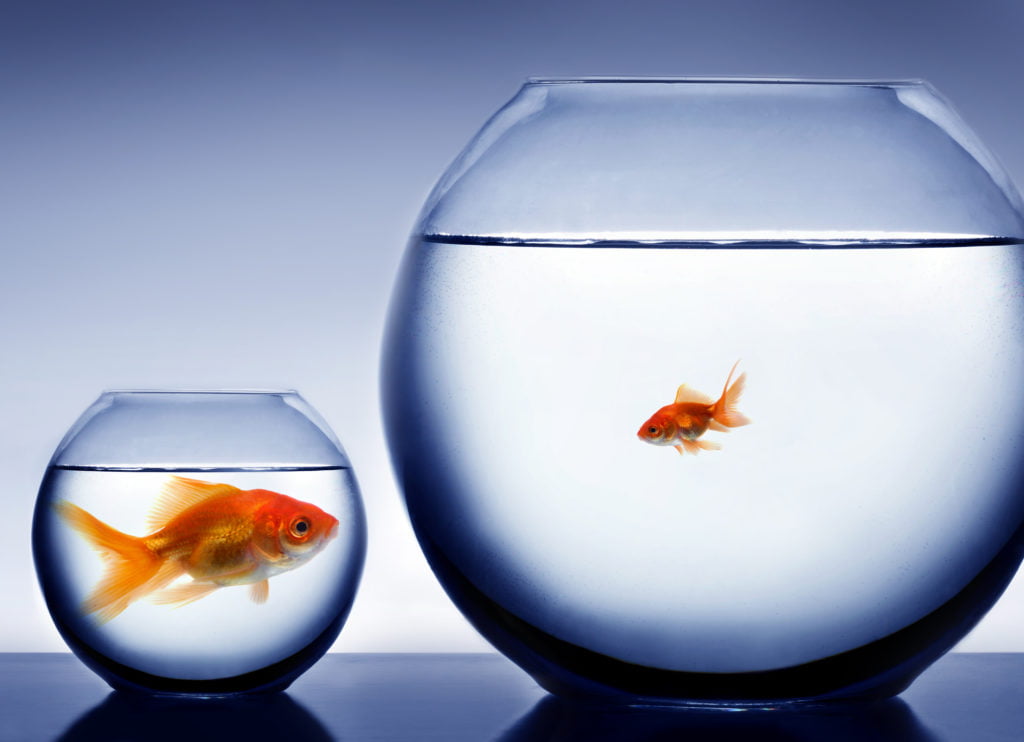
Instead of throwing out unwanted items, put them into storage for the next puppy or kitten you welcome into your home.
That applies to all sorts of items, including:
- undamaged toys they don’t play with
- collars, harnesses, and wearables they have outgrown
- bowls and tanks that are too small or large
- beds and blankets they no longer use
Alternatively, give them to a friend or neighbour who could use them, or donate them to a local animal shelter or foster carer. Chances are there is a pet nearby that would love the use of those items!
Tip #5: Store supplies (especially pet food) properly
Another reason food and other items end up in landfill is because they haven’t been stored properly. As a result, they go off, get spoiled or are invaded by pests.
So here are some handy tips to live more sustainably with pets by improving the way you store their supplies:
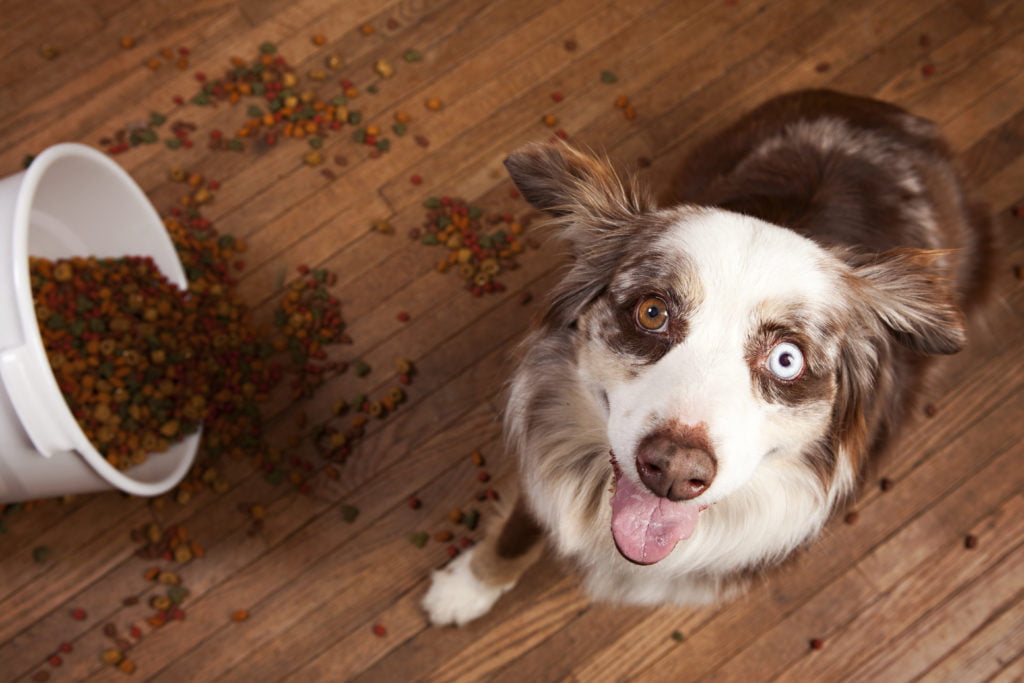
- Store them in a suitable location: Keep supplies out of direct sunlight. Don’t store them next to toxic chemicals that may leak and contaminate them (cleaning solutions, bathroom products, make-up). And avoid places that get really hot (the garden shed) or really damp (such as next to the clothes dryer or under the kitchen sink).
- Rotate: Stack tinned food and medicines/treatments like supermarkets do – the oldest at the front. That way, you use the oldest ones first and save the newest ones for later.
- Secure cupboards: You don’t want to find, for instance, your cat has substituted the litter tray for a newly opened bag of kitty litter!
- Keep it dry: Store pet food in secure, watertight containers. That includes kibble for dogs and cats, pellets for rabbits and guinea pigs, bird seed, and layer mash/pellets for chickens. (Once wet, these foods quickly go mouldy, which can make your pets sick). Do the same for straw, lucerne, wood shavings and other bedding/nesting materials, cat litter, blankets, clothes, leashes etc.
- Use metal storage containers: Metal is the best form of defence from rats, mice, and other unwanted pests. It is durable and can be recycled. Plus, you’re avoiding plastic too! Why not repurpose an old chest freezer or fridge that no longer works, or an unused metal toolbox?
Tip #6: Compost your pet’s poo
While chicken poo is a well-known fertiliser and common compost ingredient, it is possible to compost cat and dog poo too.
If you have the space at home, consider making or buying a dedicated pet poo compost heap – there are numerous systems on the market specifically designed for composting pet waste.
(Waste from carnivorous animals should always be composted separately from general garden compost, to avoid meat-related contamination in edible plants such as fruit, vegetables, and herbs).
You may need to add nitrogen and/or special microbes too to help the waste break down faster.
Plus, a recent study suggests there is a way to get your dog to produce less poo!
Tip #7: Only buy what you need
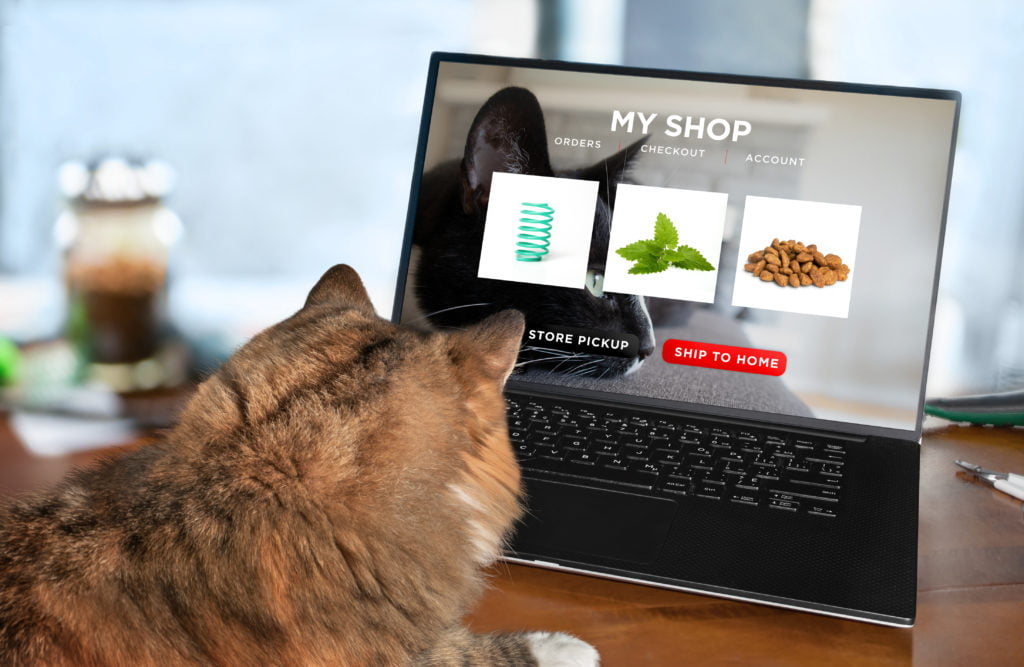
According to Australia’s Department of Agriculture, Water and Environment, 7.3 billion tonnes of food waste wind up in landfill every year. That’s the equivalent of around 300kg per person or one in five bags of groceries.
This waste is not just a problem of land pollution either – food waste accounts for over 5 per cent of Australia’s annual greenhouse gas emissions.
Much of that is food and perishables that go off because they are not used in time. The same applies to pet food as well as human food.
How many opened packs of pet biscuits, treats and supplements – not to mention parasite treatments – have you thrown out that weren’t fully used?
This is where subscription services come in handy. They portion out the supplies you need between each delivery. That way, you save on storage space and aren’t stuck with lots of unused leftovers!
Have you got any other handy tips to live more sustainably with pets? Share them with us at media@pawsnall.com.au



